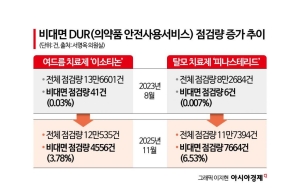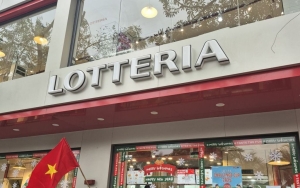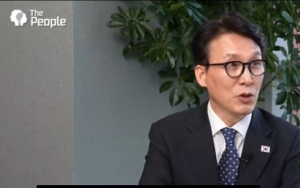홍콩,2월8일 (로이터브레이킹뷰즈) - 지난 2월 의회에 제출한 보고서에서 티모시 가이트너 미 재무부 장관이 중국을 환율 조작국으로 지명하지 않기로 한 결정은 옳았다. 그렇지 않았더라면 뜻하지 않은 결과가 초래됐을 수도 있다. 유지하는 문제로 중국에 대한 가이트너 장관의 입장은 유화적이지 않다. 대신 그는 정치적 기류를 잘 읽고 있다.
가이트너 장관의 보고서는 세 가지 결정적 증거를 지적하고 있다. 첫째는 지난 11월 260억 달러로 확대된 중국의 대규모 대미 무역 흑자 규모다. 위안화를 통제하에 두기 위해 축적한 외환 보유고로 그 규모는 2조9달한다. 마지막은 크게 변하지 않은 실질 환율이다. 중국의 위안화 가치는 명목적으로는 지난 6월 이후 4% 올랐지만 인플레를 감안하면 2008년 중순보다도 낮다. 위안화 환율이 적정 수준보다 낮다는 점을 시사한다.
그렇다면 왜 재무부가 중국에 환율 조작국으로 지목하지 않았을까? 한 가지 이유는 맞받아치기식(tit-for-tat) 미-중 무역 전쟁을 유지하기에는 무역 흐름이 여전히 너무 약하다. 마무리될 수도 있는 조치들을 취해야 하는 의무를 지게 된다. 제약을 가함으로써 보복한다면 그렇지 않아도 실업 문제로 더딘 경기 회복세가 뒷걸음칠 수도 있다. 미국의 월간 대중 수출은 현재 2009년 초반 대비 두 배 정도다.
변화를 앞두고 있다는 점이다. 후진타오 중국 국가 주석은 2012년 자리에서 물러날 예정이고 아마도 시진핑 현 부주석이 그 자리를 대신할 가능성이 크다. 시진핑 부주석의 견해에 대해 알려진 바는 거의 없지만 그는 지난해 "탐욕으로 가득찬 외국인들"로부터 조언을 듣고 싶지 않다고 기자들에게 밝힌 바 있다. 가이트너 장관으로서는 어차피 물러날 지도부에 강경 입장을 취하는 것이 의미가 없을 것이고 최악의 경우 오히려 반미 정권을 들어서게 할 빌미를 제공하게 될 지도 모른다.
가이트너 장관은 더 기다려도 된다. 중국의 전년비 소비자물가 상승률은 5%로 목표치를 웃도는 수준이다. 이는 위안화의 "실질" 가치를 끌어 올려 통화 평가절상의 효과가 나타나게 한다. 게다가 유가가 배럴당 100달러 위로 오르고 있기 때문에 세계 2위 석유 수입국인 중국은 명목 기준으로도 위안화 가치를 올리지 않을 수 없는 입장이다. 미국은 어쩌면 환율 조작국 지명이란 수단에 기대지 않고도 원하는 결과를 맞게 될지도 모를 일이다. (존 폴리 칼럼니스트)
** 이 글은 로이터 칼럼니스트 개인 견해로 로이터 편집 방향과 일치하지 않을 수 있습니다.
-BREAKINGVIEWS-Why Geithner is right to go easy on China
-- The author is a Reuters Breakingviews columnist. The opinions expressed are his own --
By John Foley
HONG KONG, Feb 7 (Reuters Breakingviews) - Timothy Geithner was right not to call China a currency manipulator in his February report to Congress. Doing otherwise could have been counter-productive. The U.S. Treasury Secretary has not gone soft on China for keeping its currency cheap. Instead, he has smartly read the political winds.
Geithner's report pointed to three smoking guns: China's large trade surplus with the United States, which widened in November to $26 billion; the huge pile of foreign currency -- some $2.9 trillion at the last count -- that China has bought up to keep its currency under control; and the largely unchanged real exchange rate. China's yuan has nominally strengthened 4 percent since June, but adjusted for inflation it is cheaper than it was in mid-2008. All three factors suggest a currency below where it should be.
So why stop short of applying the formal label? One reason is that trade flows are still too weak to sustain a U.S.-China tit-for-tat. Proclaiming China a manipulator would oblige Geithner to take steps that could end in unilateral trade sanctions. If China retaliated with curbs on U.S. goods -- as it almost certainly would -- America's already jobless recovery could suffer. Monthly exports from the U.S. to China are now twice what they were at the beginning of 2009.
An even better argument for U.S. restraint is that China is due for big political change. In 2012, President Hu Jintao will step down, and probably hand power to vice president Xi Jinping. Little is known about Xi's views, but he told reporters in 2009 that he doesn't like taking advice from "foreigners with full bellies". For Geithner to take a tough line against the outgoing leadership would at best be pointless, and at worst add an anti-American edge to the handover.
Geithner can afford to wait. China's inflation is above target, with consumer prices rising at around 5 percent a year. That does some of the work a currency appreciation would, pushing up the yuan's "real" value. Besides, the oil price rising above $100 a barrel gives the world's number-two importer an urgent reason to strengthen its currency on a nominal basis as well. The United States may get some of what it wants without having to resort to name-calling.
CONTEXT NEWS
-- No major trade partner of the United States manipulated its currency to prevent balanced trade or gain an unfair commercial advantage, the U.S. Treasury concluded in a semi-annual report to Congress, released on Feb. 4.
-- The report gives Treasury the opportunity to label a trade partner a "currency manipulator". If it does so, Treasury Secretary Timothy Geithner must instigate negotiations with the country in the International Monetary Fund or bilaterally seek a revaluation of the relevant currency.
-- The U.S. Senate is examining a proposal to consider whether currencies are "fundamentally misaligned". That label would trigger an investigation that might oblige the United States to impose corrective duties.
-- U.S. data due on Feb. 11 is expected to show that the trade deficit widened to $41 billion in December, from $38 billion in November, according to analysts polled by Reuters. The U.S. trade deficit with China widened to $26 billion in November, from an average of $23 billion in the preceding 10 months.
-- Reuters story: U.S. Treasury: Can't say China a forex manipulator [ID:nN04155394]
-- For previous columns by the author, Reuters customers can click on [FOLEY/]
(Editing by Peter Thal Larsen and David Evans)
지금 뜨는 뉴스
((john.foley@thomsonreuters.com))
Keywords: BREAKINGVIEWS CHINA/GEITHNER
<ⓒ세계를 보는 창 경제를 보는 눈, 아시아경제(www.asiae.co.kr) 무단전재 배포금지>


![전문가 4인이 말하는 '의료 생태계의 대전환'[비대면진료의 미래⑥]](https://cwcontent.asiae.co.kr/asiaresize/319/2026013014211022823_1769750471.png)















![오입금 된 비트코인 팔아 빚 갚고 유흥비 쓴 이용자…2021년 대법원 판단은[리걸 이슈체크]](https://cwcontent.asiae.co.kr/asiaresize/308/2026021014460536494_1770702365.jpg)






